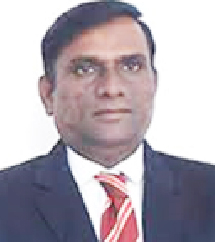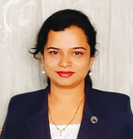
ISBM College of Engineering
Affiliated to Savitribai phule Pune University Approved by AICTE - Delhi,
DTE - Maharashtra DTE Code : EN6622



The Department of Artificial Intelligence & Data Science Engineering is dedicated to shaping the next generation of technology leaders and innovators. With the rapid advancement of AI and Data-Driven Technologies, the department offers a future-focused curriculum that blends core engineering principles with modern tools and techniques in Artificial Intelligence, Machine Learning, and Data Science.
Our programs are designed to provide students with in-depth theoretical knowledge and practical experience through Project-Based Learning, Industry Internships, and Research Initiatives. Students are trained in key areas such as Data Analytics, Deep Learning, Natural Language Processing, Computer Vision, Internet of Things, Embedded Systems and Intelligent Systems.
We Offer- Hands-on experience through labs, projects, internships, and hackathons. Focus on Real-World Applications, Research, and Ethical AI. With experienced faculty, state-of-the-art laboratories, and strong industry collaborations, we prepare our graduates to solve complex real-world problems and thrive in careers across Technology, Research, and Entrepreneurship.
High Performance Computing Laboratory-I
High Performance Computing Laboratory -II
Artificial Intelligence & Computer Laboratory
Data Science & Software Laboratory
Internet of Things Laboratory
Project Laboratory
To be a leading centre for education, research, and innovation in artificial intelligence and data science and to prepare students to be ethical and responsible leaders in the field of artificial intelligence and data science.
To provide students with a world-class education in artificial intelligence and data science.
To conduct cutting-edge research in artificial intelligence and data science.
To promote ethical and responsible use of artificial intelligence and data science.
To prepare students for successful careers in artificial intelligence and data science.
To collaborate with industry and academia to solve real-world problems using artificial intelligence and data science.
Problem-solving skills
Critical thinking skills
Communication skills
Teamwork skills
Data analysis skills
Artificial intelligence skills
| PEO1: | Graduates will have the capabilities to apply AI & DS knowledge to develop feasible systems. |
| PEO2: | Graduates will be able to handle the challenges of rapidly changing technology. |
| PEO3: | Equip the graduates with strong technical knowledge, competency in soft skills, lifelong learning skills that allow them to contribute ethically to the need of society. |
| PSO1: | Professional Skills-The ability to understand, analyze and develop computer programs in the areas related to algorithms, system software, multimedia, web design, networking, artificial intelligence and data science for efficient design of computer-based systems of varying complexities. |
| PSO2: | Problem-Solving Skills- The ability to apply standard practices and strategies in software project development using open-ended programming environments to deliver a quality product for business success. |
| PSO3: | Successful Career and Entrepreneurship- The ability to employ modern computer languages, environments and platforms in creating innovative career paths to be an entrepreneur and to have a zest for higher studies. |
| PO1 | Engineering knowledge | Apply the knowledge of mathematics, science, Engineering fundamentals, and an Engineering specialization to the solution of complex Engineering problems. |
| PO2 | Problem analysis | Identify, formulate, review research literature and analyze complex Engineering problems reaching substantiated conclusions using first principles of mathematics, natural sciences and Engineering sciences. |
| PO3 | Design / Development of Solutions | Design solutions for complex Engineering problems and design system components or processes that meet the specified needs with appropriate consideration for the public health and safety, and the cultural, societal, and Environmental considerations. |
| PO4 | PO4 Conduct Investigations of Complex Problems | Use research-based knowledge and research methods including design of experiments, analysis and interpretation of data, and synthesis of the information to provide valid conclusions. |
| PO5 | PO5 Modern Tool | Usage Create, select, and apply appropriate techniques, resources, and modern Engineering and IT tools including prediction and modeling to complex Engineering activities with an understanding of the limitations. |
| PO6 | The Engineer and Society | Apply reasoning informed by the contextual knowledge to assess societal, health, safety, legal and cultural issues and the consequent responsibilities relevant to the professional engineering practices. |
| PO7 | Environment and Sustainability | Understand the impact of the professional Engineering solutions in societal and Environmental contexts, and demonstrate the knowledge of, and need for sustainable development. |
| PO8 | Ethics | Apply ethical principles and commit to professional ethics and responsibilities and norms of Engineering practice. |
| PO9 | Individual and Team Work | Function effectively as an individual, and as a member or leader in diverse teams, and in multidisciplinary settings. |
| PO10 | Communication Skills | Communicate effectively on complex Engineering activities with the Engineering community and with society at large, such as, being able to comprehend and write effective reports and design documentation, make effective presentations, and give and receive clear instructions. |
| PO11 | Project Management and Finance | Demonstrate knowledge and understanding of Engineering and management principles and apply these to one’s own work, as a member and leader in a team, to manage projects and in multidisciplinary Environments. |
| PO12 | Life-long Learning | Recognize the need for, and have the preparation and ability to engage in independent and life-long learning in the broadest context of technological change. |

ME E&TC, PICT Pune
MESSAGE FROM HOD DESK
Welcome to the Department of Artificial Intelligence and Data Science at ISBM College of Engineering, Nande, Pune.
Artificial Intelligence and Data Science is an interdisciplinary branch of science, engineering and technology creating a complete ecosystem and a paradigm shift in virtually every sector of the technical industry, academics and research. Artificial Intelligence and Data Science is the future of technology which are changing the world at very high pace. The basic objectives of this course is to train students with the next age of Intelligence and analytics generated by machines, influencing nearly every facet of our lives to help improve efficiencies and augment human capabilities, influencing consumer products with significant breakthroughs in healthcare, manufacturing, finance and retail industries. With the tremendous amount of data generated every day and the computing power available, Data Science plays important role helping every business organisation in identifying business trends and changes through advanced Big Data Analytics with variety of techniques and tools to interpret and predict business results and future from multiple data sources through statistical analysis, data aggregation, and data mining.
The department of Artificial Intelligence & Data Science (AI & DS) is established in the academic year 2020-2021. This is a 4-year degree course approved by AICTE, New Delhi under Savitribai Phule Pune University (SPPU). The Department has experienced faculty members/staff and the state of art research laboratories. The curriculum of AI & DS is prescribed by SPPU. This curriculum targets technical and design skills, AI knowledge, and competencies needed to master strategic analytical methods and tools, and data management, with the objective of creating innovative strategies to solve challenging real-world problems.
The department has very good connect with industries. The objective of this course is to make students ready for industry with practical exposure in AI & DS.










| Sr. No. | Department | Class | Name of student | SGPA | Rank | Photo |
|---|---|---|---|---|---|---|
| 1 | AI&DS | SE | GOLE SAI RAHUL | 9.73 | 1st |  |
| 2 | AI&DS | TE | WANI SHRUTI VILAS | 9.79 | 1st |  |
| 3 | AI&DS | BE | PATIL SAMRUDDHI SANTOSH | 9.85 | 1st |  |